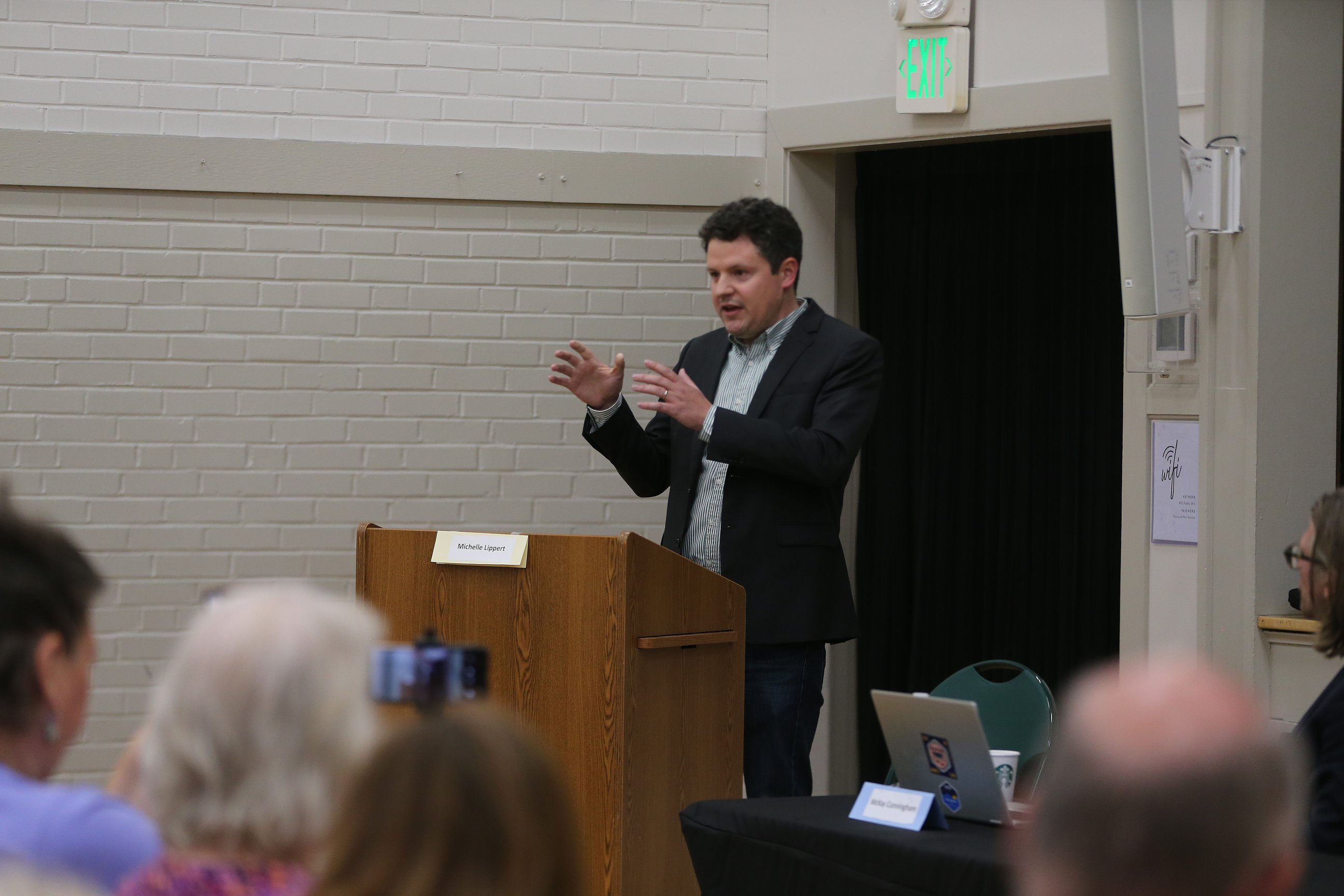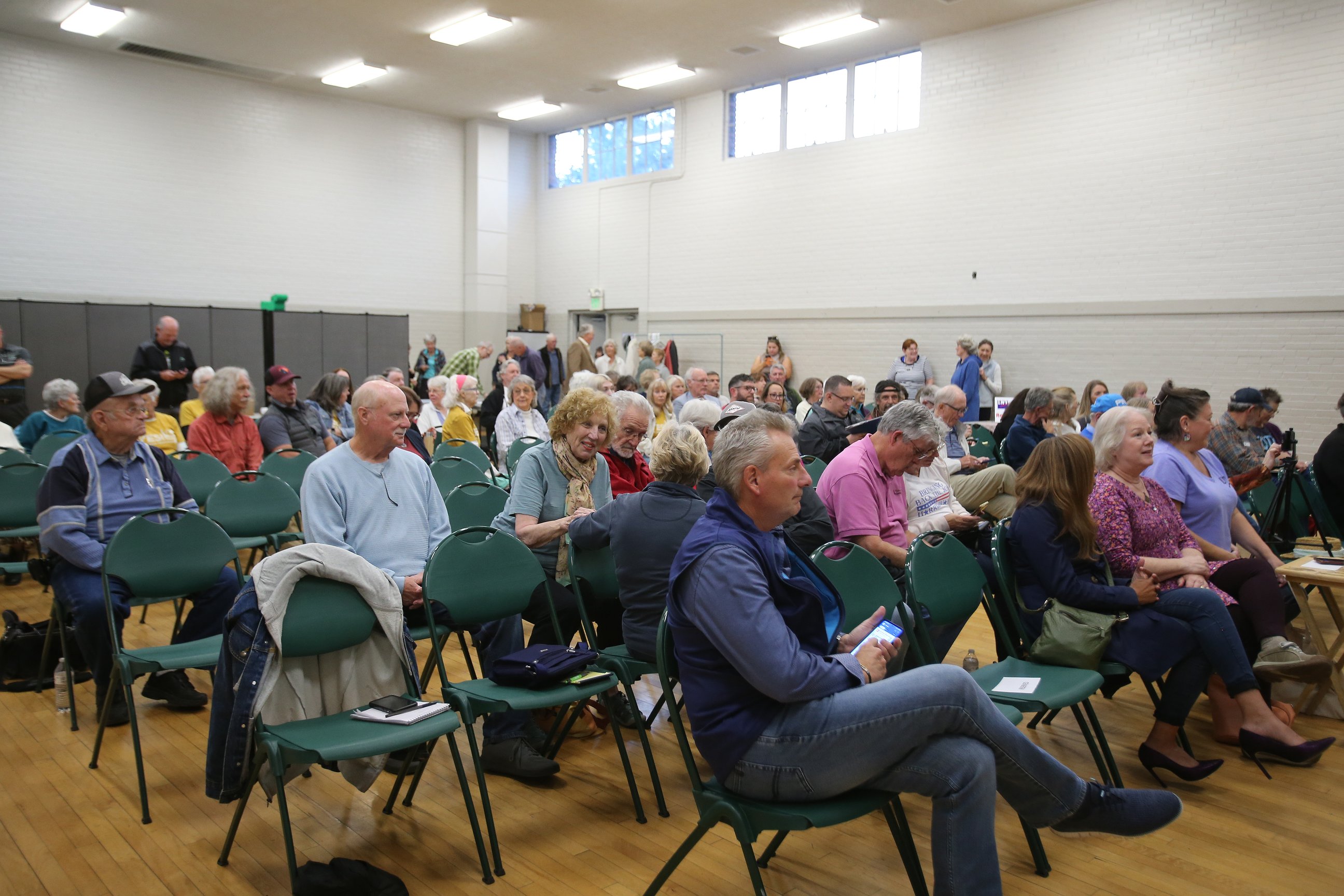Panel tackles Proposition 1 at N. Idaho forum
COEUR d'ALENE — A concern about ranked-choice voting is that it splits the number of votes from the majority party and paves the way to victory for minority candidates.
Luke Mayville recently had this discussion with someone who asked if that's what happened in the 1992 presidential election when Bill Clinton won with 42% of the vote because Ross Perot ran against George H.W. Bush, splitting the conservative vote.
"The answer to that is if they had had ranked-choice voting, it would have solved that problem," he said Wednesday evening.
The more conservative Perot voter most likely would have ranked Bush second, and Perot would have been eliminated when he came in last place, Mayville said.
"Those votes would have then gone to George H.W. Bush, putting him over the top and he would have won the election," Mayville said. "Sorry if you're a Bill Clinton fan, but that's what ranked-choice voting actually does. It allows for the candidate who really does have the most support in the community to win."
Mayville, the co-founder of the Reclaim Idaho movement, was one of four panelists who participated in the On Point Forum: "Open Primaries and Ranked Choice Voting — A Good Idea?" presented by Democrats and Republicans Together, the League of Women Voters of Kootenai County, Nonpartisan Doctors of Coeur d'Alene and Veterans for Idaho Voters.
Mayville was joined by College of Idaho professor and director of graduate programs McKay Cunningham, Veterans for Idaho Voters board member and Air Force veteran Christie Wood and author of "Accessible Elections: How the States Can Help Americans Vote" Michael Ritter, who is also an assistant professor of political science at Washington State University.
The panel highlighted aspects of Proposition 1 and fielded written questions from audience members, who filled nearly every seat in the Harding Family Center gym. If the initiative passes, Prop 1 would open closed primaries and introduce ranked-choice voting into Idaho's general elections.
"It's clear the majority across party lines don't agree that you should be blocked or forced to join a political party to vote in an important taxpayer-funded election," Mayville said.
He said the debate surrounding this initiative is whether Prop 1 is the solution people can support.
"I don't know why we're not talking about in 2011 when the party system was changed," Cunningham said. "It hasn't always been a closed primary in Idaho. It just kind of turns it on its head to say that this proposition is being abnormal in the sense that in 2011 there was a concerted effort to make primaries closed."
Mayville said the reason so many people on all sides of the political spectrum support Prop 1 is because of the basic belief that every citizen should have a voice in the political process. He said huge groups of people shouldn't be excluded.
"There are 270,000 Independent voters who are blocked from voting in the most important elections in our state," he said. "The only way they can vote is if they join a political party that they don't want to. We hear that all across the state, that people do not want to join a political party just to be able to exercise their right to vote."
Questions were asked about whether Prop 1 violates the principle of "one person, one vote," if it weakens political parties and if it violates the Idaho Constitution for having two components.
Ritter said over the course of U.S. history, respect has been growing among government leaders to trust the people to choose the best candidates for office. Trends are moving toward open primaries and giving more power to the people, "regardless if they're Republicans, Democrats or moderates of any stripe, to choose who will be their general election candidates."
Open primaries boost voter turnouts, he said, while closed primaries depress voter turnout.
"They tend to discourage all but the party loyal from casting ballots," he said.
Gina Brooks of Coeur d'Alene was one of several attendees who wore a "Vote Yes on Prop 1" T-shirt. She said she was appreciative for the forum.
"I feel like it's giving us more information about what this is, especially ranked-choice voting, I'm learning more about that," she said. "I really like the idea that all of the Independents could vote in the primary, because there are so many Independents. And because it's taxpayer funded, we're all paying for this, so that's why I'm for it."





